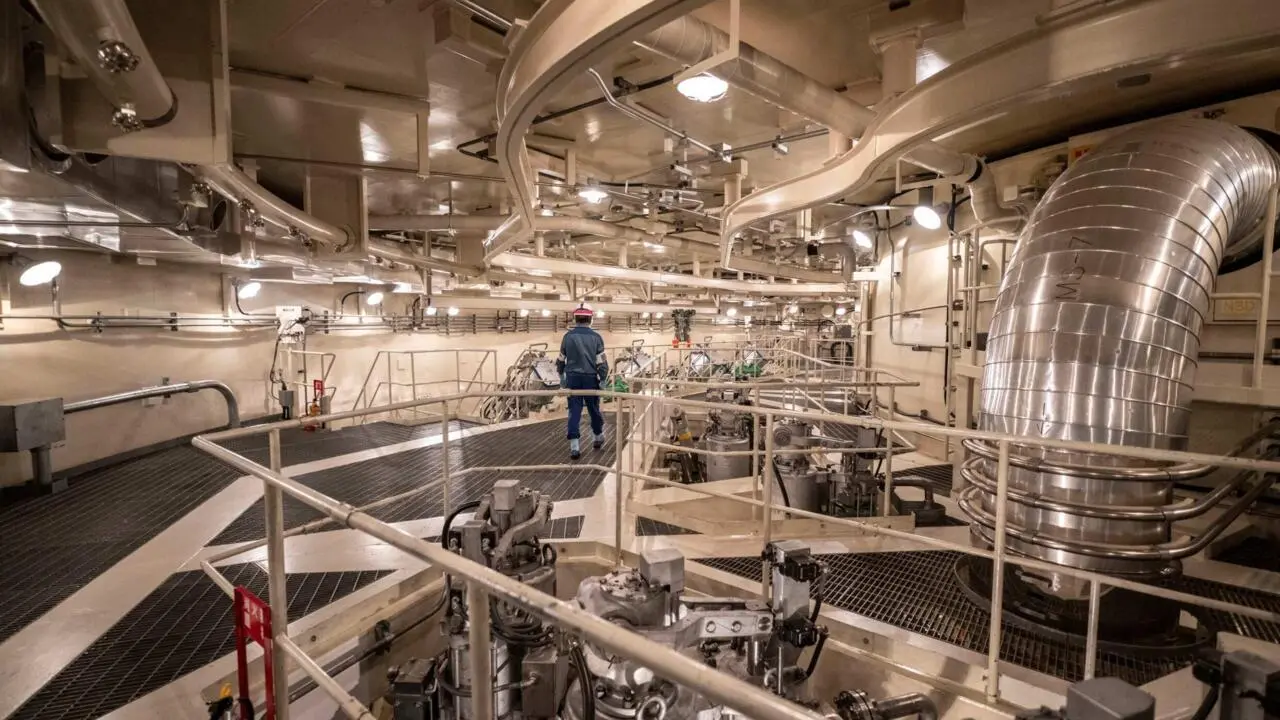Japan pulled the plug on nuclear power after the 2011 Fukushima disaster, but with the G7’s dirtiest energy mix, it is seeking to cut emissions, and atomic energy is making a steady comeback, in part because of AI.
Before the 2011 quake and tsunami, which killed around 18,000 people, nuclear power generated about a third of Japan’s electricity, with fossil fuels contributing most of the rest. All of Japan’s 54 reactors were shut down afterwards, including those at KK. To keep the lights on, resource-poor Japan has hiked imports of natural gas, coal and oil while increasing solar power. But fossil fuels are expensive, with imports last year costing Japan about $510 million a day.
The government is striving for “carbon neutrality” by 2050 and to cut emissions by 46 percent by 2030 from 2013 levels. It wants to increase the share of renewables to 36-38 percent from around 20 percent and cut fossil fuels to 41 percent from around two-thirds now.
Japan aims for nuclear power to account for 20-22 percent of its electricity by 2030, up from well under 10 percent now. Japan in late 2022 decided to accelerate reactor restarts and to extend operating time for nuclear reactors to 60 years from 40.
Nine of Japan’s 33 still-operable reactors are currently online.
Business groups remain worried about power shortages, particularly as Japan seeks to go big in energy-hungry data centres for artificial intelligence (AI).
Making Fukushima fully safe, meanwhile, has also barely begun. Japan last year started to release into the Pacific Ocean some of the 540 Olympic pools’ worth of treated cooling water amassed since 2011.



Putting aside clean for now, what part of nuclear is renewable again?
Woops. I misspoke. Yeah, nuclear is not renewable, but it’s a helluva lot better than fossil fuels, and I’m not advocating for nuclear instead of solar/wind/hydro, but if it makes sense to do alongside renewables then I don’t see why not, especially as energy demands go up and whatever your opinion getting every single person to comply with not running their own models is not realistic and a kneecap to the technological development.
I’m sure the government of Japan weighed their options and there is a good reason to do nuclear power, especially considering their history.
Its 95% renewable. And all deaths from nuclear including the bombs and melted down reactors is equivilent to a couple weeks of deaths caused by coal pollution.
I believe there is some evidance the oil/coal companies pushed anti nuclear propaganda cos it is so effective it would have effected their bottom line.
That’s not how this works. That’s not how any of this works. That’s like saying plastic is renewable because you can recycle part of it
Nuclear is a centralised, slow and expensive technology. If we had built it up 50 years ago, we wouldn’t be so dependent on coal today, that much is true. But to get away from coal now, we need investment in renewables.
The energy companies who own the coal plants often are the same that own the nuclear plants. And they’re afraid that the grid becomes less centralised. I don’t buy that conspiracy about coal suppressing nuclear. Nuclear isn’t an economically viable technology today (and might not ever be) without huge government subsidies in perpetuity.